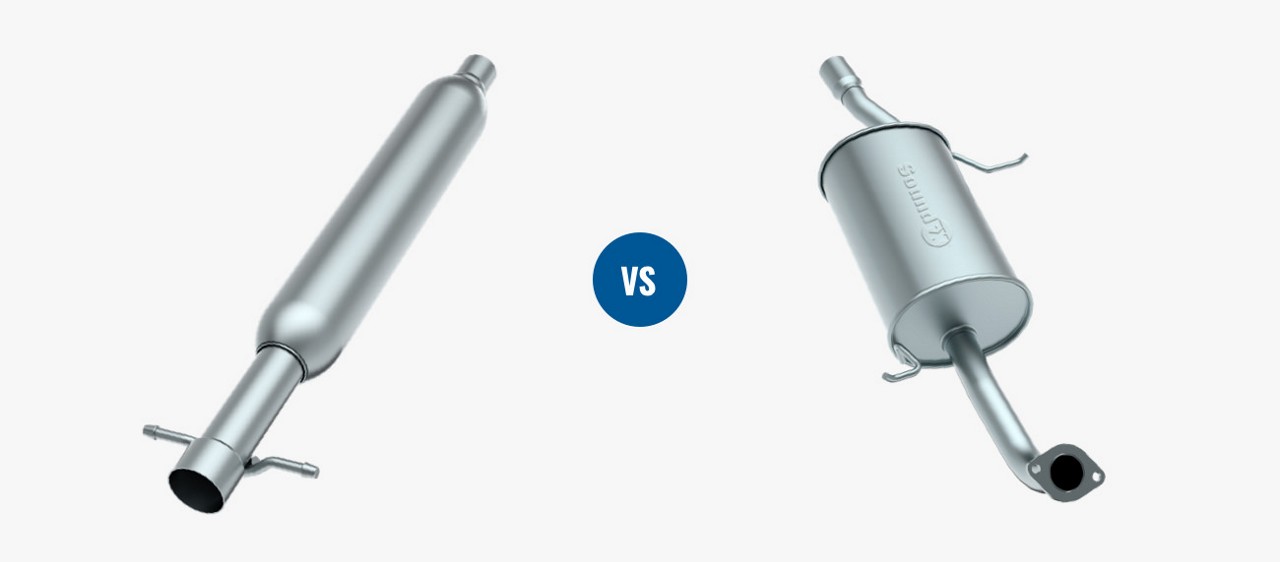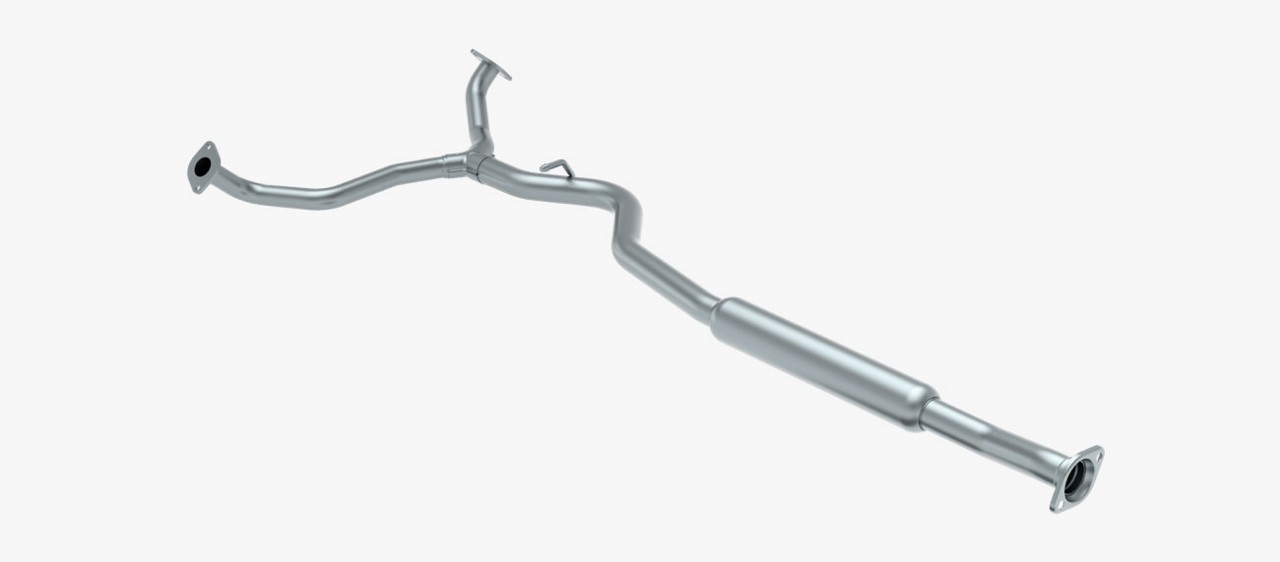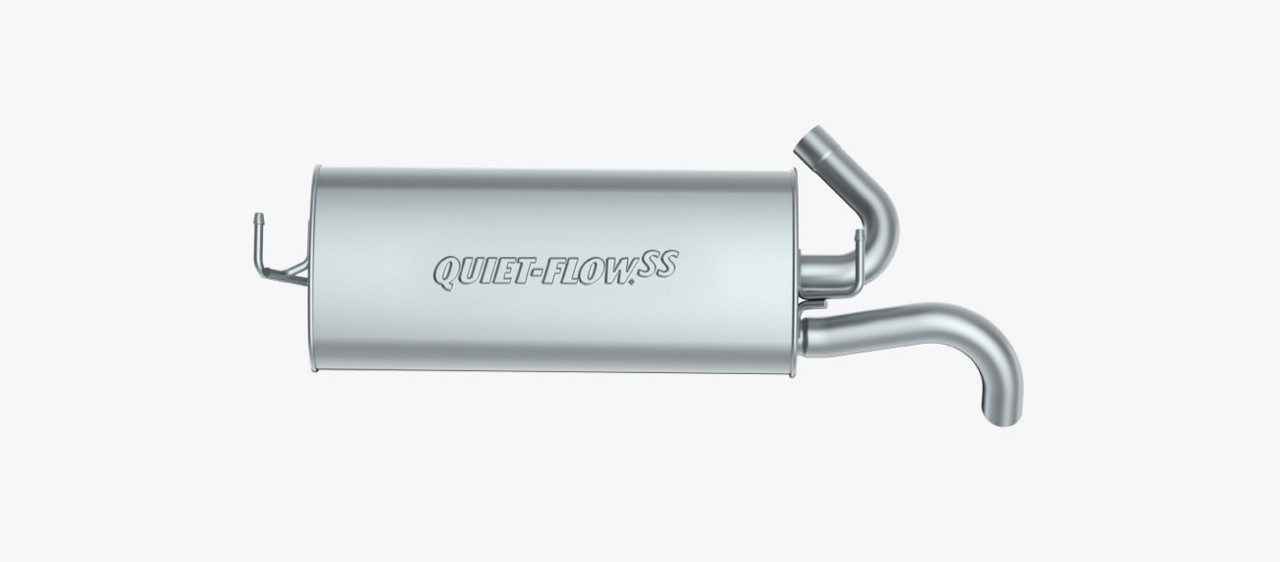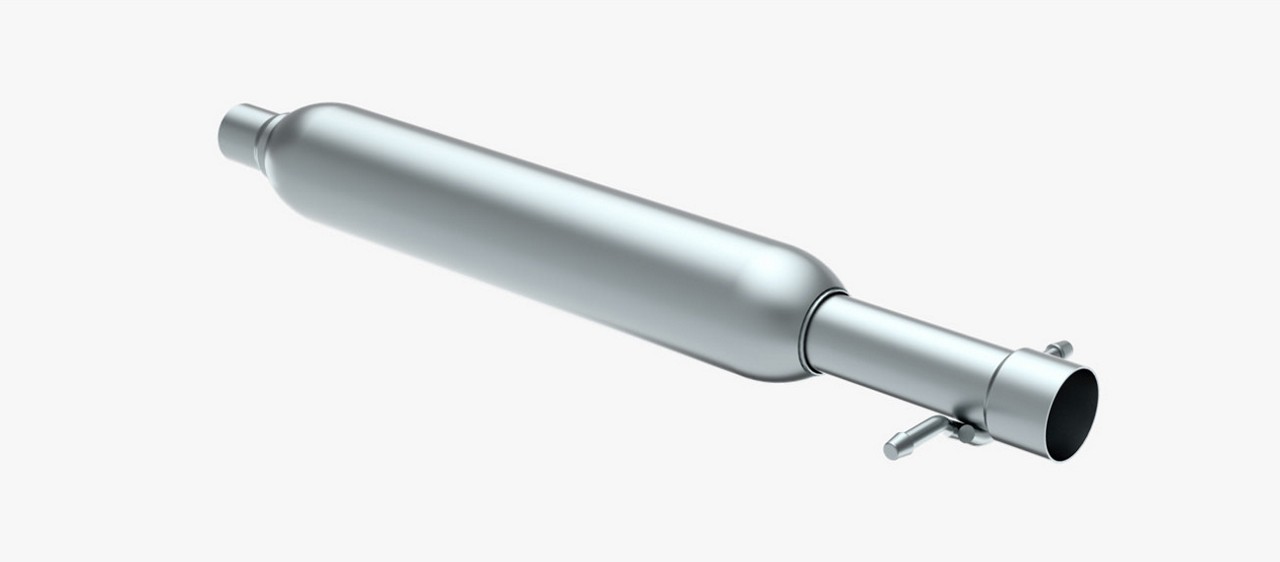What is a Resonator?
Louder isn’t always better, especially when it comes to your vehicle’s exhaust. To help keep the sounds coming from your vehicle in check, the components of the exhaust system play a big part in helping to reduce the sound levels coming from the engine.
A resonator is a part of the exhaust system that is vital to keeping the sounds coming from your vehicle at a reasonable level. Installed between the catalytic converter and the muffler, resonators help quiet the exhaust system by cancelling out a certain range of sound frequencies before they enter the muffler which silences them.
Resonator vs Muffler

It’s easy to think of resonators and mufflers as interchangeable; both are part of the exhaust system and play a role in reducing the sound emitting from your vehicle. However, each are a distinct part of the exhaust system with differing layouts and functions.
Resonators

Using a straight-pipe design, resonators change and cancel certain engine sounds before they enter the muffler. Resonators have less baffling than a muffler; they don’t lower sound volume and they don’t reroute the exhaust gases like a muffler does.
Mufflers

Featuring tubes, partitions and baffling, and other materials like fiberglass, mufflers lower the volume of the engine sounds as they exit the exhaust system. Mufflers also filter exhaust fumes that have gone through the catalytic converter into the atmosphere.
How Does a Resonator Work?

Functioning as a sound frequency tuner, a resonator helps reduce the intensity of the sound in an exhaust system. Sounds produced from the engine enter the exhaust system at high and low frequencies. The tuning features within a resonator help reduce the harsh, raspy tones associated with the high frequency sound waves to provide a more mellow exhaust tone. These sounds bounce around the empty chamber of the resonator with some sounds changing and some cancelling each other out as they travel through the pipe to the muffler. The resonator plays a critical role in helping the primary muffler produce the vehicle-specific sound performance intended by the original design.
Does My Car Have a Resonator?
Not all vehicles come from the factory with a resonator; some vehicles have a muffler and no resonator, while other vehicles have both a resonator and a muffler. When combined, a resonator and a muffler work to keep the sound at a reasonable level without compromising performance. Your service provider will be able to tell you the makeup of your exhaust system. You can also consult Walker®’s part finder to see what types of exhaust parts are available for your vehicle.
If your vehicle came equipped with a resonator, it is important to replace the resonator if it becomes worn or damaged. Your exhaust system is designed to work at peak efficiency with the use of a resonator, and if it isn’t working properly, it can adversely affect the ability of the exhaust system to reduce the sounds coming from the engine.
Signs of Resonator Wear

Resonators primarily deteriorate from the inside out due to the acidic moisture produced by the combustion process. Other signs you may need to replace your resonator include noise coming from the resonator, a foul odor from not properly filtering exhaust gases, or reduced engine performance and decreased gas mileage. If you suspect you have a problem with your exhaust system and/or resonator, schedule an appointment with your service provider.
Learn more about RESONATORS, find the right car part, or find where to buy your AUTO PART.
The content in this article is for informational purposes only. You should consult with a certified technician or mechanic if you have questions relating to any of the topics covered herein. Tenneco will not be liable for any loss or damage caused by your reliance on any content.
Other Parts For Your Vehicle
Walker® offers a wide variety of auto parts for all your vehicle needs.
Check them out today!